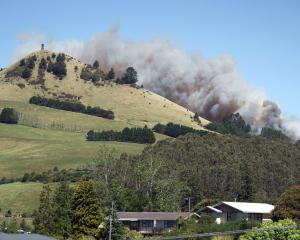
At the weekend, Ms Sage and Fisheries Minister Stuart Nash tagged 1267sq km from Timaru to Waipapa Point in Southland as a reserve network.
It is the larger of two proposals created by the South-East Marine Protection Forum early last year, which was a collection of local representatives given the task of deciding the extent of the network five years ago.
It created two proposals for government consideration.
The first option appeased commercial fisheries and one of two recreational fishing representatives.
The second option, which the ministers chose, is four times the size and supported by the tourism, science and environmental sectors.
The network includes six marine reserves which ban commercial and recreational fishing.
It also includes five "type two marine protection areas" which allow most recreational fishing and some commercial fishing depending on the method.

Ms Sage said the network was a way of fixing New Zealand's "biodiversity crisis".
She expected discussion documents to be created within the next two months.
There would then be a further public consultation process, after which the decision would go to Cabinet.
Staff would move quickly and the process would take "months rather than years".
She understood there could be "consultation fatigue" after the forum's extensive submission process, but the Government had to follow legal processes.
Neither option fully represented the biodiversity in
the area, she said.
"There is an opportunity in the consultation process for people who believe additional areas should be protected or boundaries should be amended."
The move was "especially significant" for the Otago coast which was the only region in the country with no marine protection.
Mr Nash said New Zealand protected very little of its coastline and marine reserves were a way of delivering on a "clean, green brand".
There would be an impact on commercial fishing, he said.
"But I do not accept that we are taking away quota or we are stopping people for making a living out of fishing."
Forum commercial fishing representative and Otago Rock Lobster Association executive officer Simon Gilmour said he was "disappointed" the process did not address what he considered the "real issues" on the coast.
Loss of kelp, small pelagic fish and krill was the main reason for biodiversity loss rather than fishing, he said.
The reserve north of Pleasant River removed 25% of the rock lobster catch, he said.
"You're not actually doing something that will have a beneficial effect on this coast."
The forum's findings predicted the chosen option would displace $3.6 million in estimated fishery exports.
Forum representative and Forest and Bird Otago-Southland regional manager Sue Maturin said the forum "bent over backwards" trying to accommodate the commercial fishing industry.
"We did a lot of compromising to not take away major fishing areas. I'm glad the Government didn't compromise further."
The network was a "great starting point", she said.
"It is really exciting for Dunedin."
However, there were still "big holes".
It was a "disappointment" there were not more areas for creatures such as penguins and sea lions.
"It's not a proper network. It really doesn't incorporate the best designs for some of the reserves."
The organisation would be "delighted" if the submission process presented the opportunity to expand the network.
Forum member and iwi representative Edward Ellison said the option ministers chose would have the best effect on protecting marine life.
"We certainly did our best to consider quota holders."
The ministers said they instructed their departments to work with Ngai Tahu to explore aspirations for establishing and managing marine protected areas in the region, including what co-management of the areas would look like.













